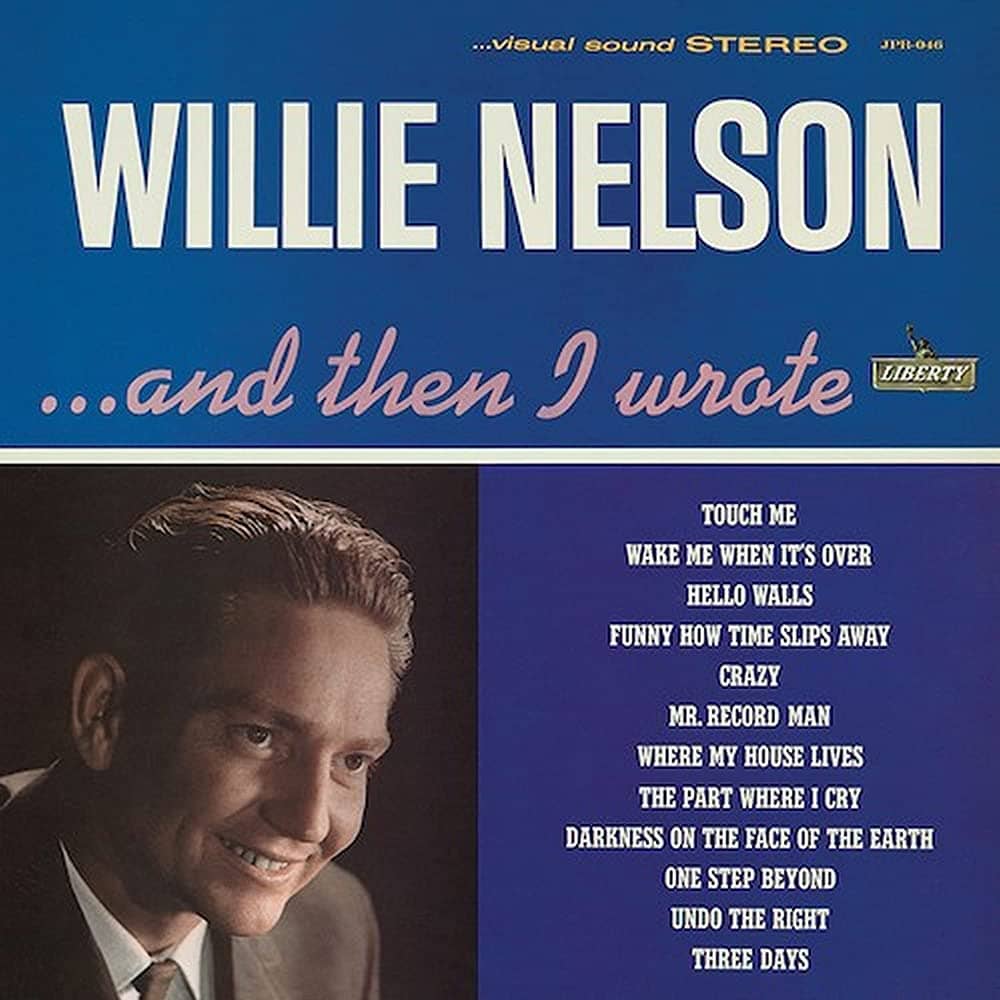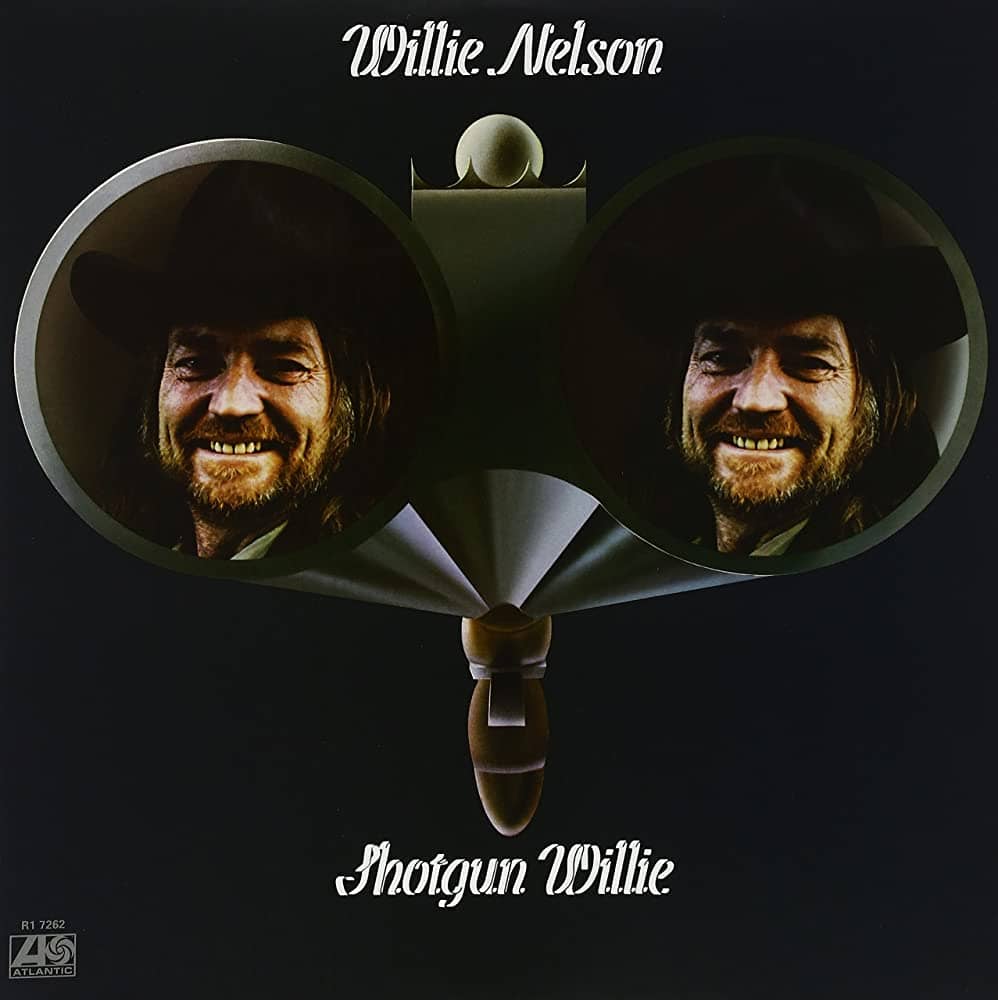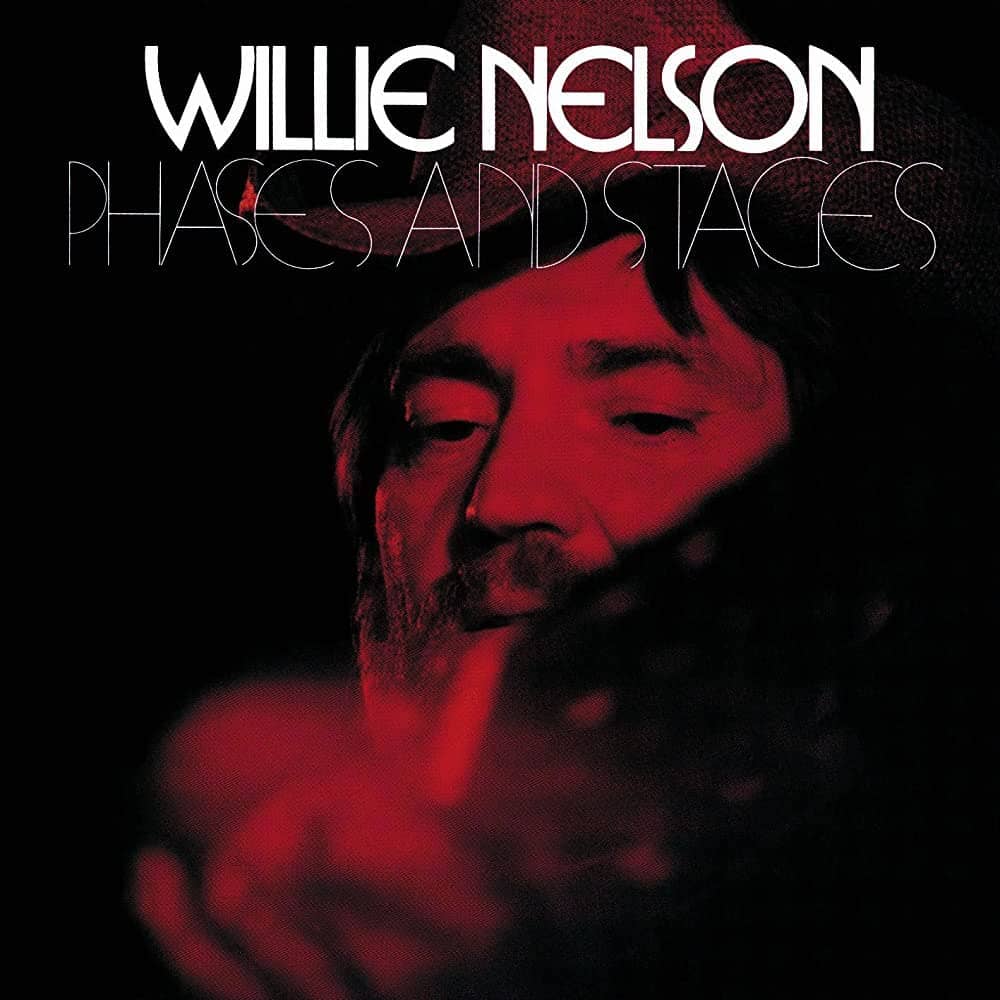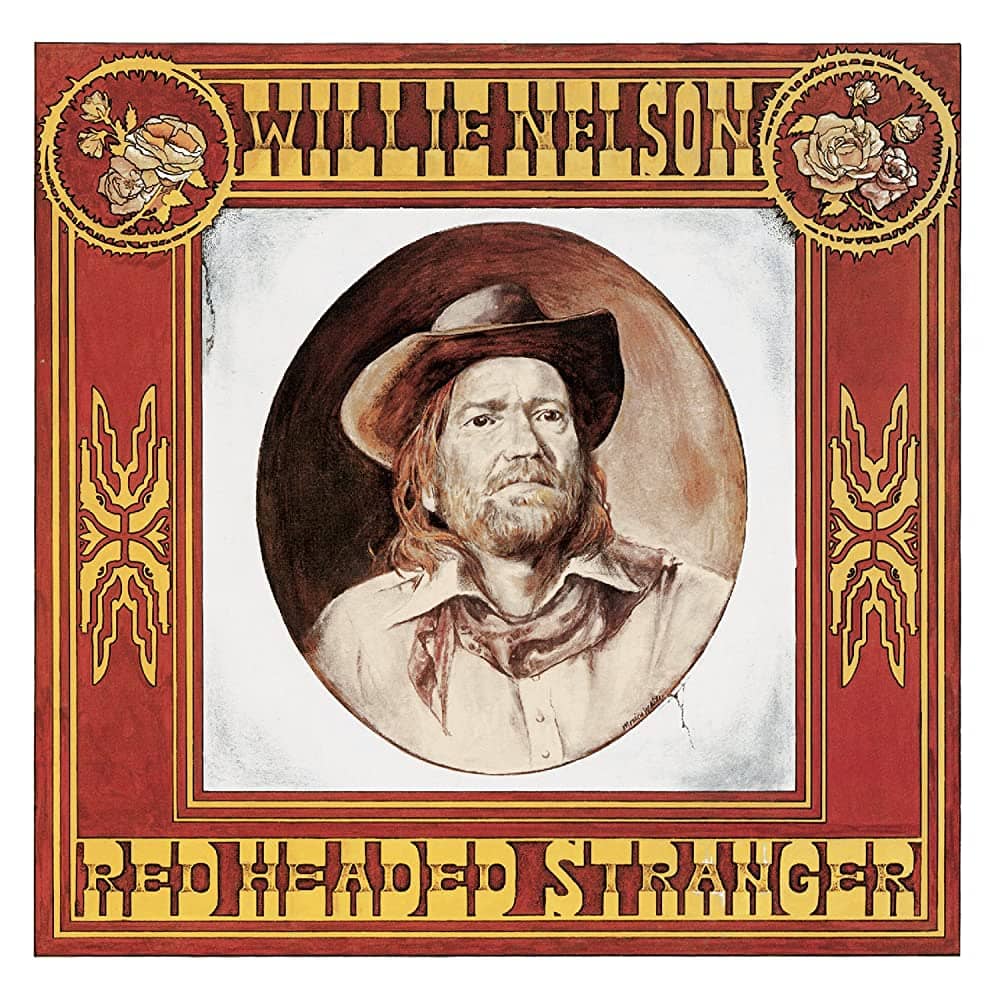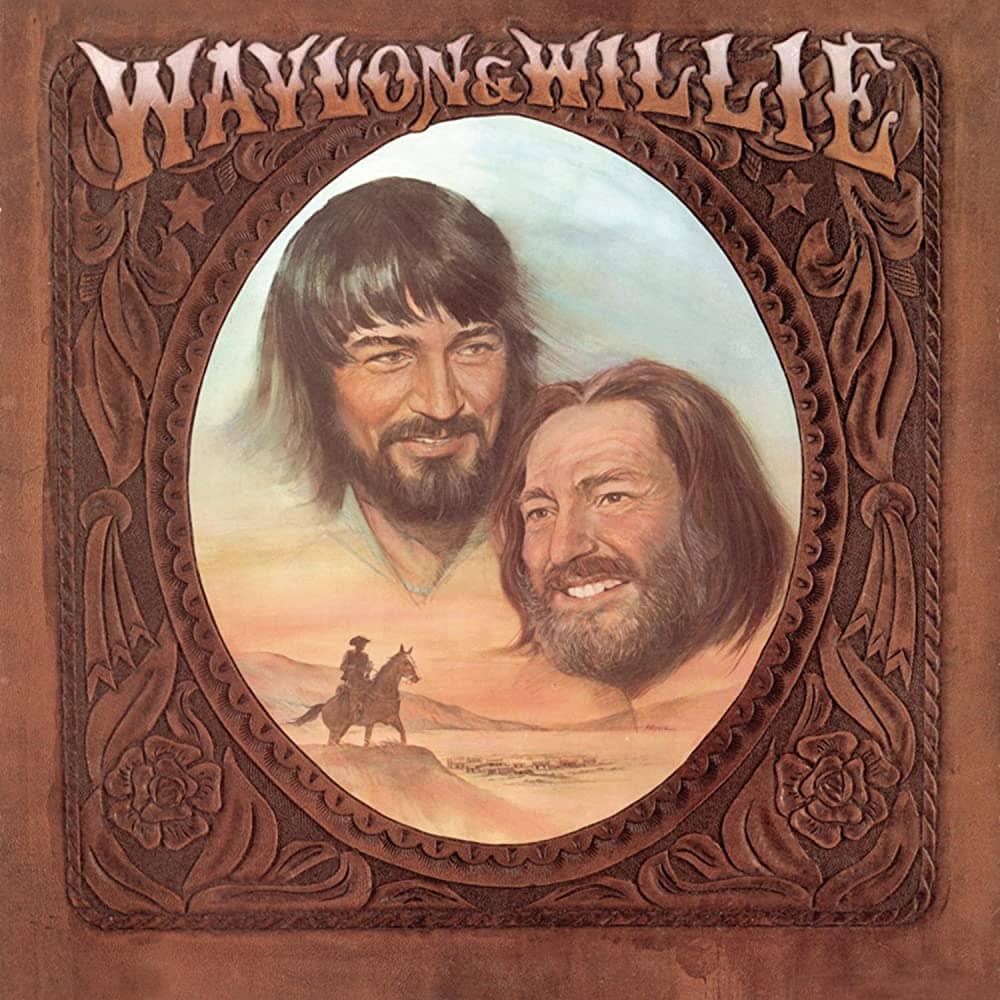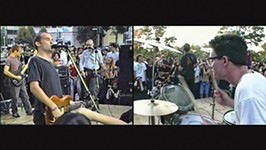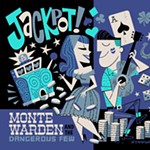Nine Essential Albums From Willie Nelson’s 90 Years
Wishing the Texas outlaw icon a Willie nice birthday
By Rachel Rascoe, Tim Stegall, Doug Freeman, Abby Johnston, Kevin Curtin, Michael Toland, and Raoul Hernandez, 10:00AM, Fri. Apr. 28, 2023
Born Willie Hugh Nelson on April 29, 1933, the singer’s late-night birth wasn’t recorded by the courthouse in Abbott, Tex., until the next morning. So, Willie rightly earns two birth dates.
Ninety years later, we can forgive the Texas country giant for opting to celebrate with two star-studded concert dates in Los Angeles (look out for our review next week). The Austin ambassador won’t be gone for long: The 50th anniversary of his storied 4th of July Picnic concert lands at Q2 stadium this summer, featuring Tyler Childers, Dwight Yoakam, Shakey Graves, Sierra Ferrell, Asleep at the Wheel, and more, alongside Willie Nelson & Family. Tickets, on sale today, start at $49.
To blow out 90 candles for our still-gigging and still-Hill-Country-living state sage, Chronicle writers revisited nine personal favorites among the artist’s whopping 99 solo and collaborative studio albums (not to mention numerous live records and compilations). See you at 100 years, Willie! – Rachel Rascoe
…And Then I Wrote (Liberty Records, 1962)
As the hottest songwriter on Nashville’s Music Row, Nelson recorded his first album. He had built his reputation composing, in quick succession, the biggest country hits of 1961 at Ray Price’s Pamper Music: “Hello Walls” (Faron Young), “Night Life” (Price), “Funny How Time Slips Away” (Billy Walker), “Pretty Paper” (Roy Orbison), and the juggernaut that was “Crazy” (Patsy Cline). Liberty Records A&R Joe Allison thought the man who wrote those hits – songs which betrayed an intimate familiarity with heartbreak and loss – should sing them. Rallying in Los Angeles after a dissatisfactory all-night Nashville session, core members of the Wrecking Crew (drummer Earl Palmer, guitarist Billy Strange) joined future Merle Haggard guitarist Roy Nichols in attempting the Ray Price shuffle to all of the above compositions (aside from “Pretty Paper” and “Night Life”). The gamble landed “Touch Me” in Billboard’s country top 10, another Willie first. – Tim Stegall
Essential song: “Mr. Record Man”
Shotgun Willie (Atlantic, 1973)
“Shotgun Willie sits around in his underwear.” That opening salvo from the title track of Nelson’s Atlantic Records debut set the scene for the songwriter’s new attitude and sound upon moving to Austin. With an easy back porch ethos, Nelson’s cornerstone entry into outlaw country started his immaculate Seventies LP run that would reshape country music, and arguably Austin. As importantly, the raw and hasty New York City recording session brought about formation of the Family, with Sister Bobbie joining to contribute piano and becoming a fixture of the band. His takes on “Whiskey River” and “Stay All Night (Stay a Little Longer)” became synonymous with Nelson as live show staples. The LP also bridged the songwriter’s classic heartache (“Sad Songs and Waltzes'') with a stripped down approach and country funk sound (“Devil in a Sleepin’ Bag”), signaling a new era that still epitomizes Willie to the world. – Doug Freeman
Essential song: “Shotgun Willie”
Phases and Stages (Atlantic, 1974)
Nelson’s 17th studio effort, Phases and Stages was a revolution. In a time where country music peddled – as it still largely does today – in singles capturing just enough tenderness without compromising cowboy masculinity, Nelson eschewed both, writing a concept album that captured both sides of a divorce. “Washing the dishes, scrubbing the floors/ Caring for someone who don't care anymore.” Those lines, examining the heteronormative plight of a woman whose marriage is falling apart, kick off the record’s first side, told entirely through the wife’s perspective. Nelson, sole songwriter on the album, extended country music’s limited view of women’s role in their own love stories. Men in country had been comfortable acknowledging their roles in the dissolution of relationships, but rarely trained lenses on women. The songwriting’s genius shows through Nelson’s range between the two narrators. The man’s point of view feels notably clunkier, less fluent in defining how the couple got there and what comes next. Nodding to the differing societal expectations between men and women, Phases and Stages was a smart critique that still resonates. – Abby Johnston
Essential song: “Phases and Stages (Theme)/Washing the Dishes”
Red Headed Stranger (Columbia, 1975)
The album which began everything, this record announced the arrival of the country-artist-as-auteur concept. It popularized the progressive country movement. It put Austin on the map as a music capital. It gave Nelson his first chart-topper, “Blue Eyes Crying In The Rain,” also his first single to crossover to the pop charts. And it made a star out of Willie, 18 albums in from …And Then I Wrote. A hillbilly opera concerning an 1800s fugitive who’d shot his wife and her lover, Red Headed Stranger was recorded for peanuts at Garland, Texas’ Autumn Sound Studios, with sparse instrumental accompaniment – bass, drums, piano, harmonica, and Trigger, Nelson’s legendary guitar. Columbia execs thought the finished work was a demo and consulted Nashville producer Billy Sherrill, who thought it “a piece of shit.” The LP was released as is May 1975, after Waylon Jennings called one label suit a “tin-eared tone-deaf son of a bitch.” It went gold 10 months later. – Tim Stegall
Essential song: “Blue Eyes Crying in the Rain”
Waylon & Willie (RCA Victor, 1978)
with Waylon JenningsMy mom used to bring “Have a Willie Nice Day” T-shirts to my Chinese aunts in other states, who loved his gun-slinging cowboy mystique. Despite growing up in Texas, I never knew much beyond the braids, until I eventually gave a full-album listen to Waylon & Willie. In my grinning Seventies outlaw primer, 11 well-ordered, slightly woozy tracks go down easy – even staying mellow on “Pick Up the Tempo,” one of five Nelson and Waylon Jennings duets, and spacey for Fleetwood Mac’s “Gold Dust Woman,” Jennings’ take among three solos each. The patchwork of old and new – which introduced homey anthem “Mammas Don't Let Your Babies Grow Up to Be Cowboys," to this day one of Nelson’s live constants – earned some flack due to the buddies singing over already-released backing tracks. Indeed, the barroom doors swing loosely here, as the two Texans “settle down and steal each other's songs” (“Don’t Cuss the Fiddle”). I say, why not catch the icons in the midst of peak national popularity, hanging out unceremoniously? Everybody needs an entry point. – Rachel Rascoe
Essential song: “I Can Get Off On You”
The IRS Tapes: Who’ll Buy My Memories? (1991, Sony Music Special Products)
This is Nelson in his purest form, only voice and acoustic guitar. All that makes him unique as a singer-songwriter is plainly perceptible: his dulcet nylon strings floating through chord progressions, keeping a time known only to the universe; his mellow baritone pitch-perfect and plangent – longing, lost-in-memory, landing every lyric true. Texas-born producer Bob Johnston, who helmed landmark albums by Bob Dylan, Johnny Cash, Leonard Cohen, and Simon & Garfunkel, emerged from hibernation to capture Nelson at his most intimate. Before eventually hitting record store shelves, the double CD or cassette – containing three potent new songs and 21 strip-mined favorites – was sold via phone orders on late-night commercials, an effort to raise millions for what was then reported to be the highest IRS penalty ever befalling an individual. Nelson’s assets had been seized and he risked losing it all, but Who’ll Buy My Memories grossed $3.6 million for the taxman, helping satisfy his $9 million settlement and leaving fans with a collection that feels like you’re listening to Willie sing in his living room. – Kevin Curtin
Essential song: "Who'll Buy My Memories"
Across the Borderline (Columbia, 1993)
As a Seventies kid, I heard a lot of Nelson at home. I didn’t get it. My single-digit self couldn’t get next to his voice, and I just didn’t grok country back when it was still music for adults. When I heard “Still Is Still Moving to Me” on the radio in 1993, though, I latched onto its epic spiritual romanticism immediately, and snapped Across the Borderline up. The “and friends” format was clearly his label’s attempt to make Willie relevant to non-country fans. Bingo: the Don Was production, songs by folks I already dug (John Hiatt, Paul Simon, Bob Dylan, Willie Dixon), and Willie’s commitment worked like a charm. It’s still a favorite. Plus it sent me scrambling to hear what I’d missed all those years ago. I still have Across the Borderline – my gateway to Willie World – on my shelf, alongside my father’s original Seventies-era LPs. – Michael Toland
Essential song: “Still Is Still Moving to Me”
Teatro (Island, 1998)
Nelson has never shied from unexpected collaborations and producers, but 1998’s Teatro stands apart as a masterwork. Teaming with Daniel Lanois, who had creatively reignited both Emmylou Harris (1995’s Wrecking Ball) and Bob Dylan (1997’s Time Out of Mind), Nelson delves into darker and moodier territory. The U2 producer’s patient, atmospheric, and percussion-heavy impulses hunger with a sound that fills out the sparse melancholy of 1996’s Spirit, wrapping the singer’s unique phrasing with an even more mysterious edge. It’s a palette that played brilliantly for re-recording “I Never Cared for You,” “Darkness on the Face of the Earth,” and “My Own Peculiar Way,” while Harris’ sharply twanged backing vocals elevate Nelson’s own. Likewise, the centerpiece take on Lanois’ “The Maker” rolls gorgeously evocative as Nelson’s trembling vocals hold both a fragility and awe-awakened strength against the pounding rhythm – perhaps the songwriter’s best rock song remake. – Doug Freeman
Essential song: "I Never Cared for You"
Willie and the Wheel (Bismeaux, 2009)
with Asleep at the WheelInspired by, executive produced in name mostly, and dedicated to Atlantic Records fortune hunter Jerry Wexler, who died prior to its release, Willie and the Wheel closes a four-decade meeting of the music and minds. Staking 1973’s Shotgun Willie and helming Phases & Stages the following year, the label runner foretold the intersection of Nelson and Asleep at the Wheel’s mission unstoppable: Western Swing. Pioneered by Lone Star statesmen Milton Brown and Bob Wills especially, honky-tonk Texan jazz slips ’n’ slides, shuffles ’n’ scoots, bops ’n’ bounces. Cab Calloway, Spade Cooley, Bennie Moten, and other blueprint pioneers play chicken herein across nonexistent genre lines of instrumental prowess and lyrical wit. Willie’s obviously jazzed by the concept – energized, enthused, bemused – while Ray Benson leads ATX’s Country & Western Duke Ellington Orchestra as spotlighted by Jason Roberts’ tart fiddle and Elizabeth McQueen’s sassypants duet “I’m Sittin’ on Top of the World.” – Raoul Hernandez
Essential song: “I’m Sittin’ on Top of the World”
A note to readers: Bold and uncensored, The Austin Chronicle has been Austin’s independent news source for over 40 years, expressing the community’s political and environmental concerns and supporting its active cultural scene. Now more than ever, we need your support to continue supplying Austin with independent, free press. If real news is important to you, please consider making a donation of $5, $10 or whatever you can afford, to help keep our journalism on stands.





